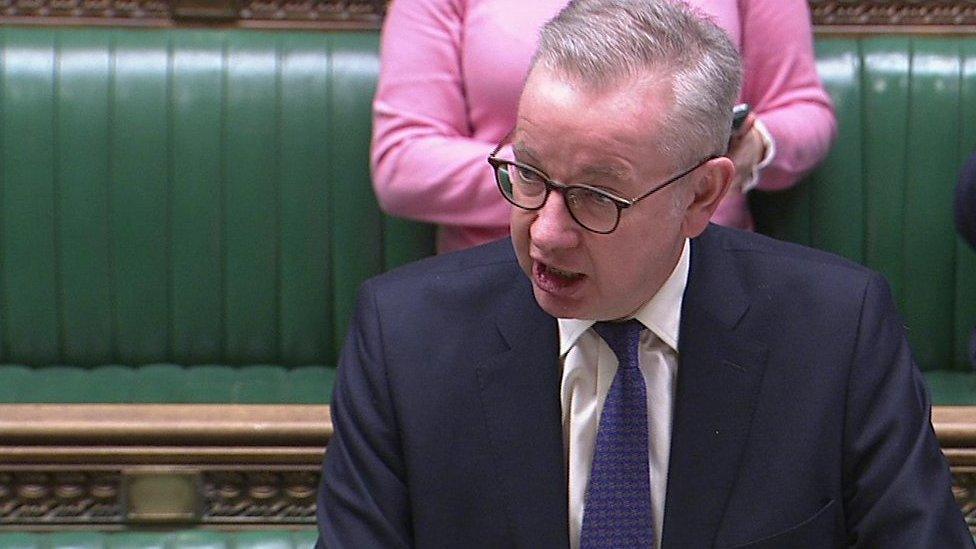Grenfell tragedy: Inquiry hears of forgotten four victims
- Published
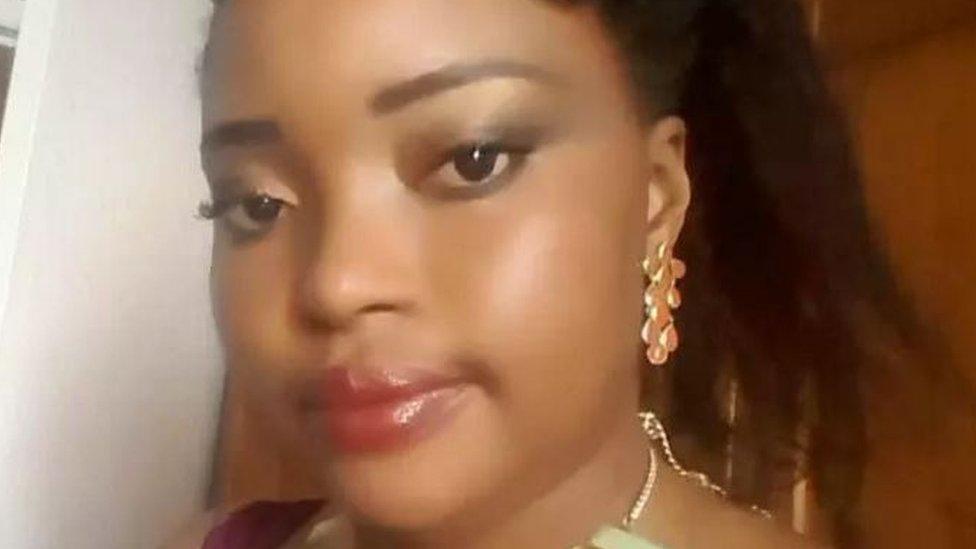
Zainab Deen died with her two-year-old son
The stories of four "forgotten" victims of the Grenfell tragedy have been heard.
The official public inquiry into the 2017 disaster has heard the last submissions from lawyers on behalf of the 72 people who died.
Zainab Deen, her son Jeremiah, Denis Murphy and Mohammad Alhajali perished on the 14th floor.
The inquiry is due to resume on 7 November with closing statements from lawyers, before a report is published.
London Fire Brigade (LFB) told eight residents to wait in flat 113 on the 14th floor, the inquiry was told.
Four were escorted to safety at 02:30 BST, but the remaining four died after firefighters received confused instructions on their whereabouts, the inquiry heard.
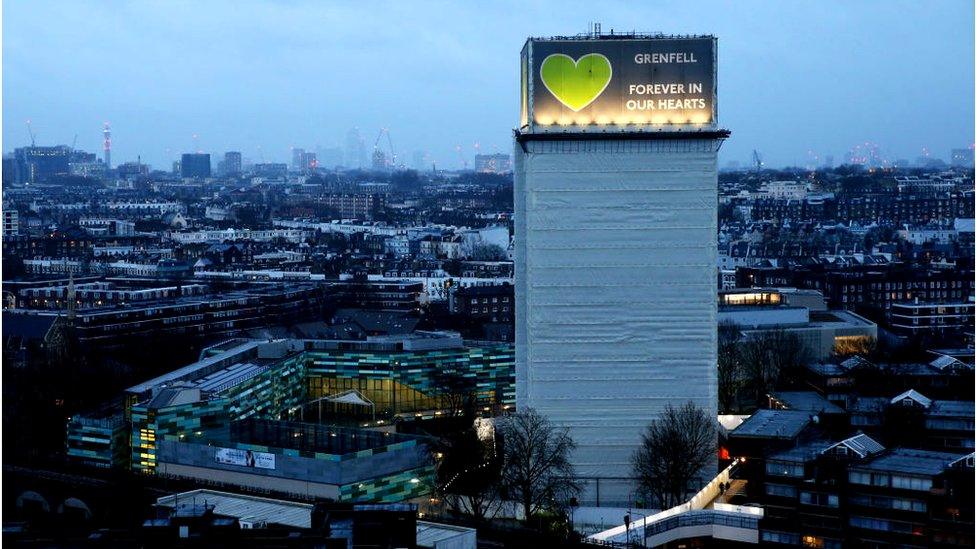
Seventy-two people died in the blaze at the tower block on 14 June 2017
"The forgotten four", as Allison Munroe QC called them, were single mother Ms Deen, 32, her son Jeremiah, their Irish neighbour Mr Murphy, 56, and Syrian refugee Mr Alhajali, 23.
Three of the victims died from the effects of smoke inhalation over the course of a few hours. Mr Alhajali, a civil engineering student, survived the longest but fell from a window as he tried to escape at about 04:00.
His body was found face-up and covered in debris on Grenfell Walk.
Tributes were paid to each resident.
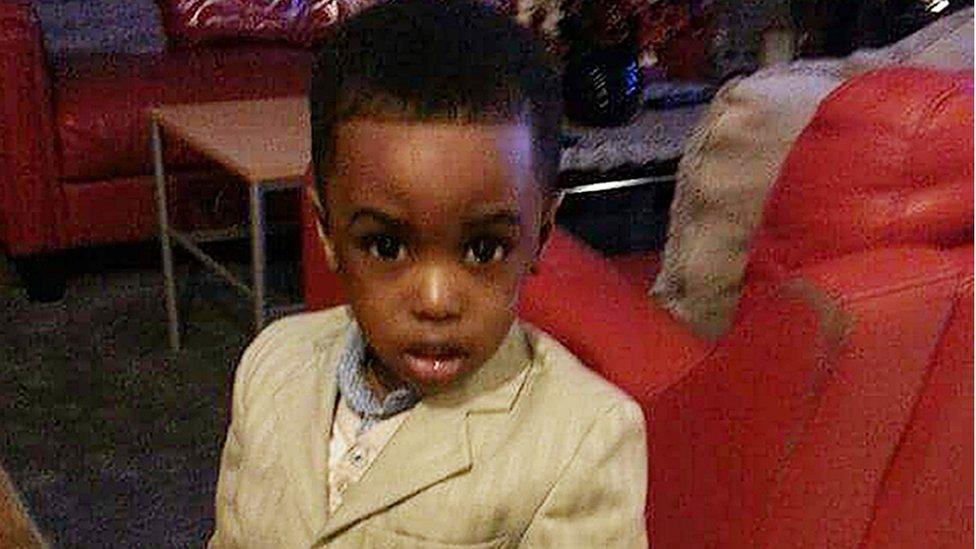
Jeremiah was trapped with his mother on the 14th floor
Ms Deen, originally from Sierra Leone in west Africa, was described by friend Francis Dean as "like champagne, very bubbly", and her son as "a very clever and happy child".
She had escaped "an unhappy and tormented" marriage and homelessness, and was proud of securing a tenancy in the tower to start a new life with her son.
Ms Deen had been due to start a waitressing job on 19 June, and Mr Dean said she had been "dancing for joy at the prospect".
The inquiry heard that during an hour-long 999 call on the night of the fire, Ms Deen pleaded with emergency services to save her son, before telling them he had died.
She succumbed to the smoke while still on the line.
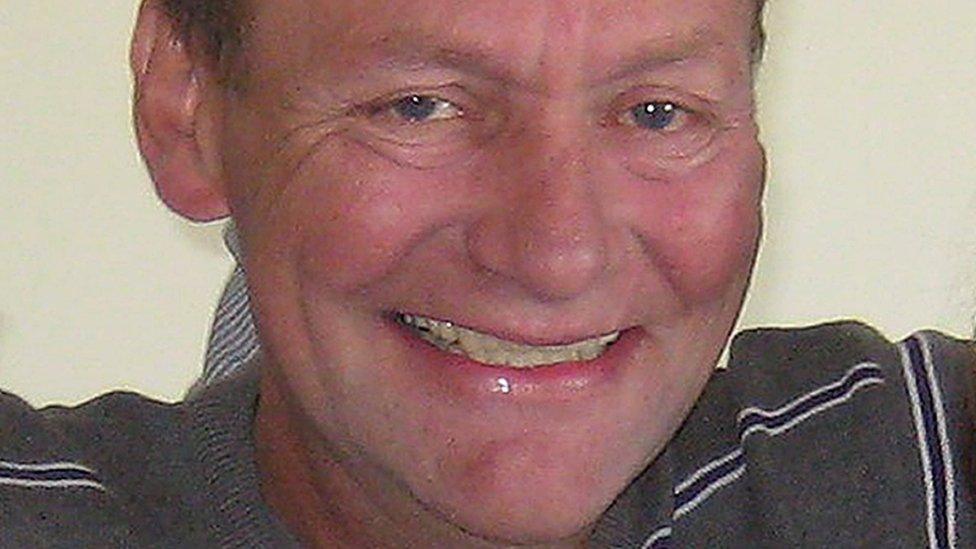
Denis Murphy was the 57th person to be identified as a victim of the blaze
Mr Murphy had lived in the tower for over three decades, was from a "large and loving Irish family" and was described by friends as "integral to the Grenfell community" because he was always helping other residents.
The Hammersmith-born resident loved Chelsea FC, and was like an uncle to many of the children in the North Kensington block, the inquiry heard.
Mr Alhajali, from Damascus, had also been taken to wait in flat 113 with his brother Omar, who was among those escorted to safety and who desperately implored firefighters to return.
His parents and two sisters had stayed in Syria, and the Grenfell Tower Inquiry heard that he had "dreamed one day he would be able to bring his family together in one place where they would be able to settle and live their best life".
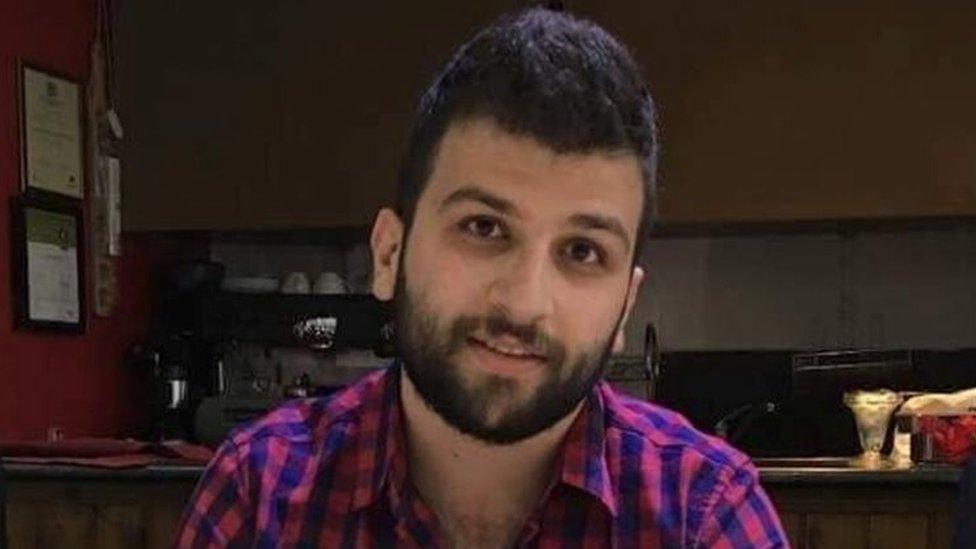
Mohammad Alhajali came to London as a refugee having fled his home country of Syria
The inquiry's lead counsel Richard Millett QC said: "There can be nobody who ever had a heart who, hearing those presentations, could remain unmoved and unthinking.
"My team and I can only admire the dignified bearing of those left behind - the grieving families who still travel the hard road.
"They have endured many months of detailed and often dry evidence with patience, and they have now heard graphic and unsparing accounts in modest and silent reflection.
"Their dignity and their courage in the face of the ineffable horror is its own tribute - a light shining out in the darkness."
'Many mistakes were made'
He said the panel had more than 300,000 documents to consider over the coming months, until the inquiry resumed for final statements.
Closing the hearing, the chair Sir Martin Moore-Bick said "many mistakes were made and many witnesses have acknowledged that they or the organisations they represented failed in one way or another to meet the standards to be expected of them".
But he said it was "important to direct criticism at those who truly bear responsibility".
"We need to complete as quickly as possible but if our report is to carry weight and the recommendations to have real force, it must be comprehensive, well reasoned and persuasive," he added.

Follow BBC London on Facebook, external, Twitter , externaland Instagram, external. Send your story ideas to hellobbclondon@bbc.co.uk, external
- Published15 June 2022
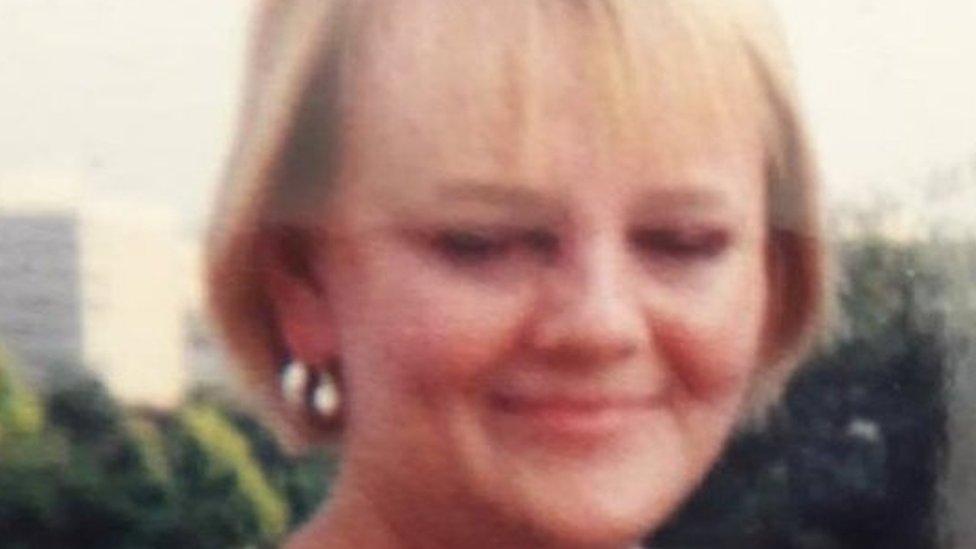
- Published14 June 2022
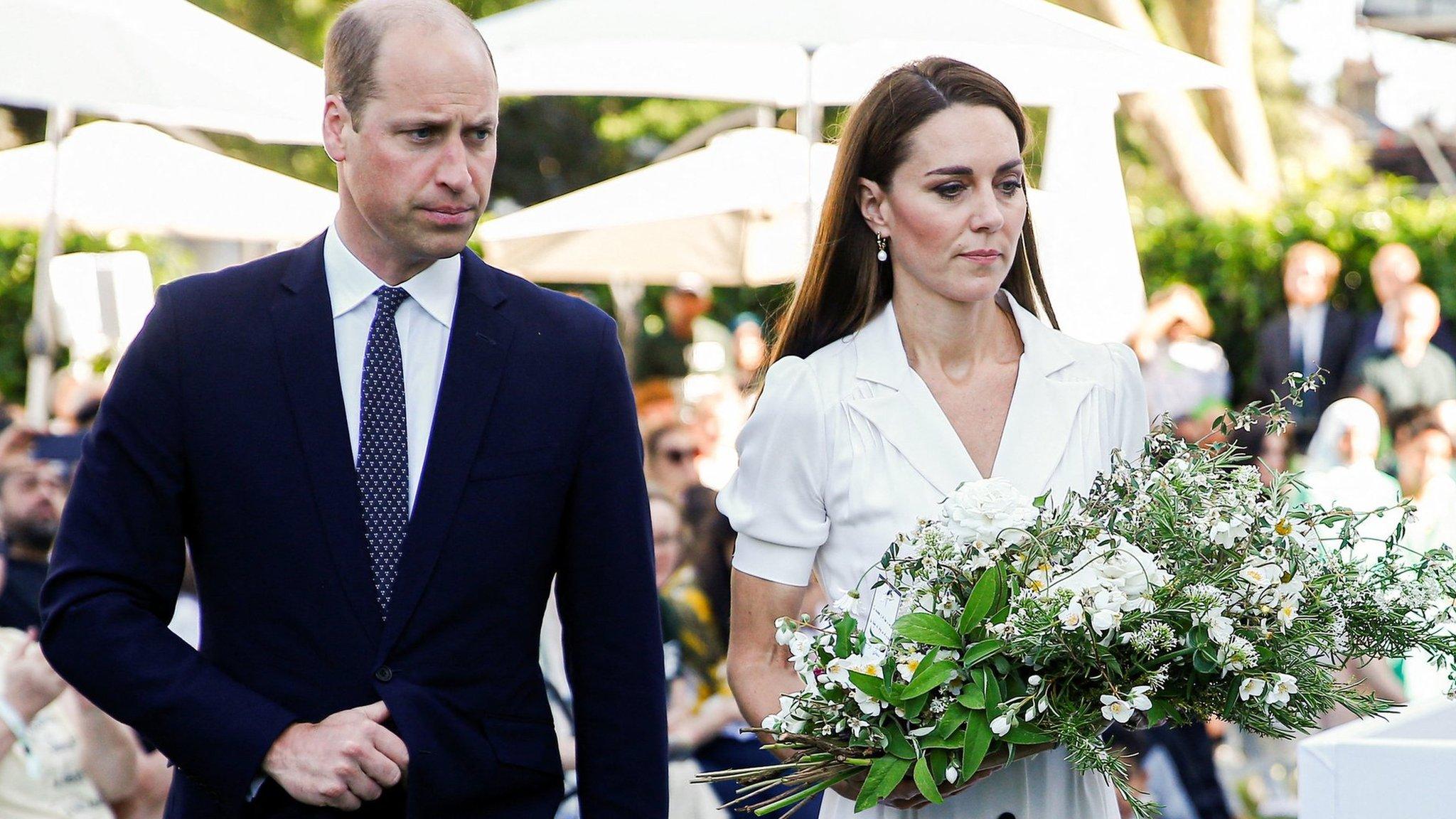
- Published13 June 2022
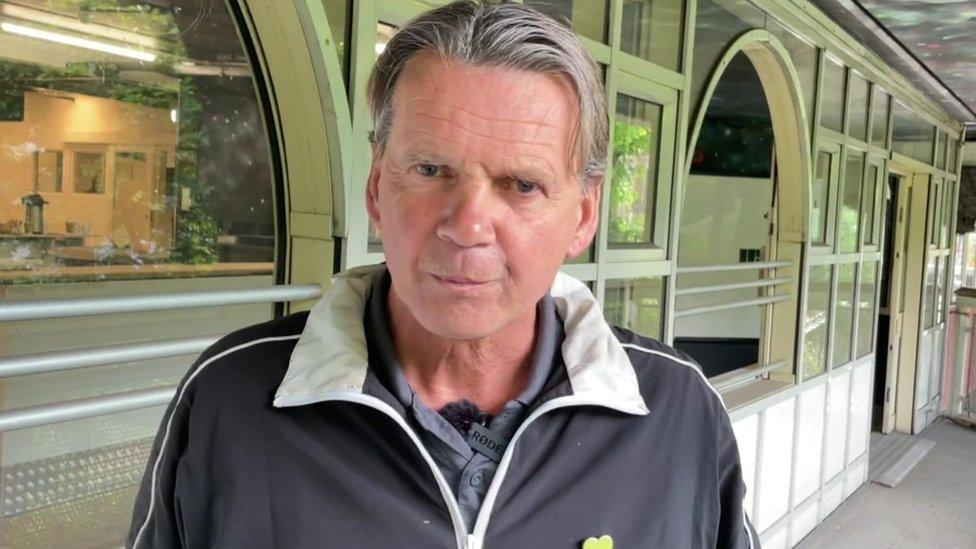
- Published7 April 2022
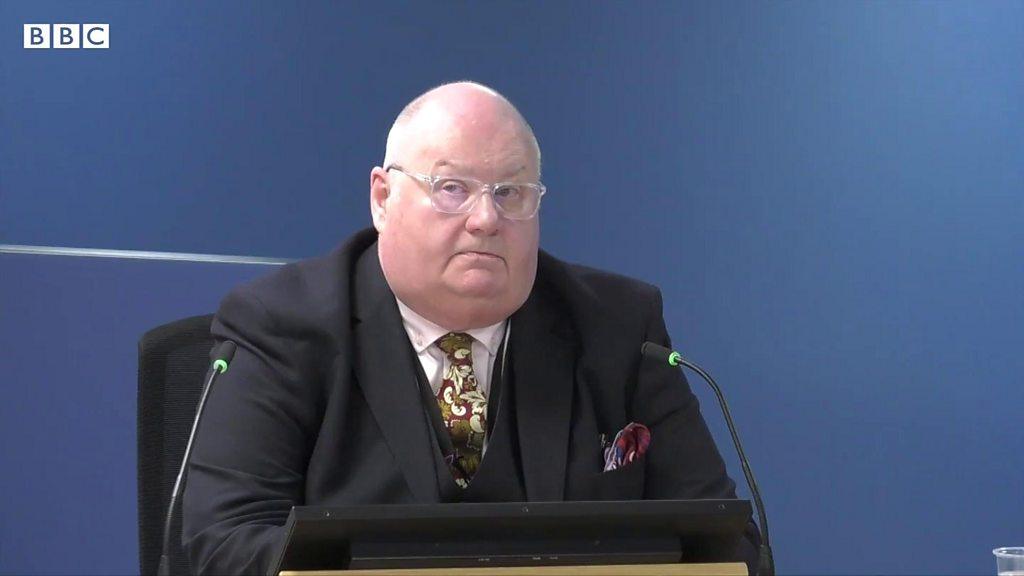
- Published10 January 2022
